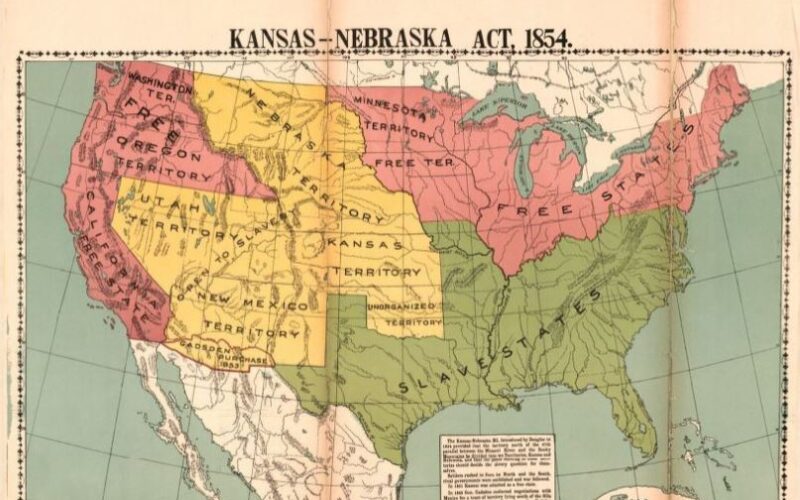This Day In History: May 30th
Former Senator Stephen Douglas of Illinois proposed a bill to organize the Territory of Nebraska in 1854 and the bill became known as the Kansas-Nebraska Act. Officially titled “An Act to Organize the Territories of Nebraska and Kansas,” the legislation was created to repeal the Missouri Compromise and added to the controversial debate over slavery in the United States. President Franklin Pierce signed the bill into law on May 30, 1854.
Prior to the Kansas-Nebraska Act, the Missouri Comprise was enacted in 1820. The legislation admitted Missouri to the Union as a slave state and Maine as a free state while banning slavery from the remaining Louisiana Purchase lands located north of the 36º 30’ parallel. The Missouri Compromise remained intact for nearly 35 years before being replaced by the Kansas-Nebraska Act.
With westward expansion, newfound gold in California and California’s subsequent request to become a state, Congress was left to deal with the fallout between free states and slave states. By the end of 1850, Senator Henry Clay (with the help of Douglas) persuaded Congress to accept the Compromise of 1850. With the Compromise of 1850, California entered the Union as a free state but Utah, New Mexico, Nevada and Arizona were able to determine whether slavery would be allowed within the territory’s borders. The legislation further intensified the debate over the institution of slavery and expansion.
Douglas sought to organize a vast area of land which would become modern-day Kansas, Nebraska, Montana and the Dakotas. Southern slaveholders opposed Douglas’ initial “Nebraska Bill” to organize the territory. He added an amendment that repealed the Missouri Compromise and created two new territories, Kansas and Nebraska. Similar to the Compromise of 1850, settlers in each territory would determine their own rules on slavery.
Despite opposition, the Senate passed the Nebraska bill and President Pierce signed it into law. The Kansas-Nebraska Act ultimately shifted the political landscape. Opponents of the Kansas-Nebraska Act established the Republican Party, while abolitionists in the North criticized the legislation for putting an end to the Missouri Compromise. It also led to the demise of the Whig Party and caused the Democratic Party to be divided.


